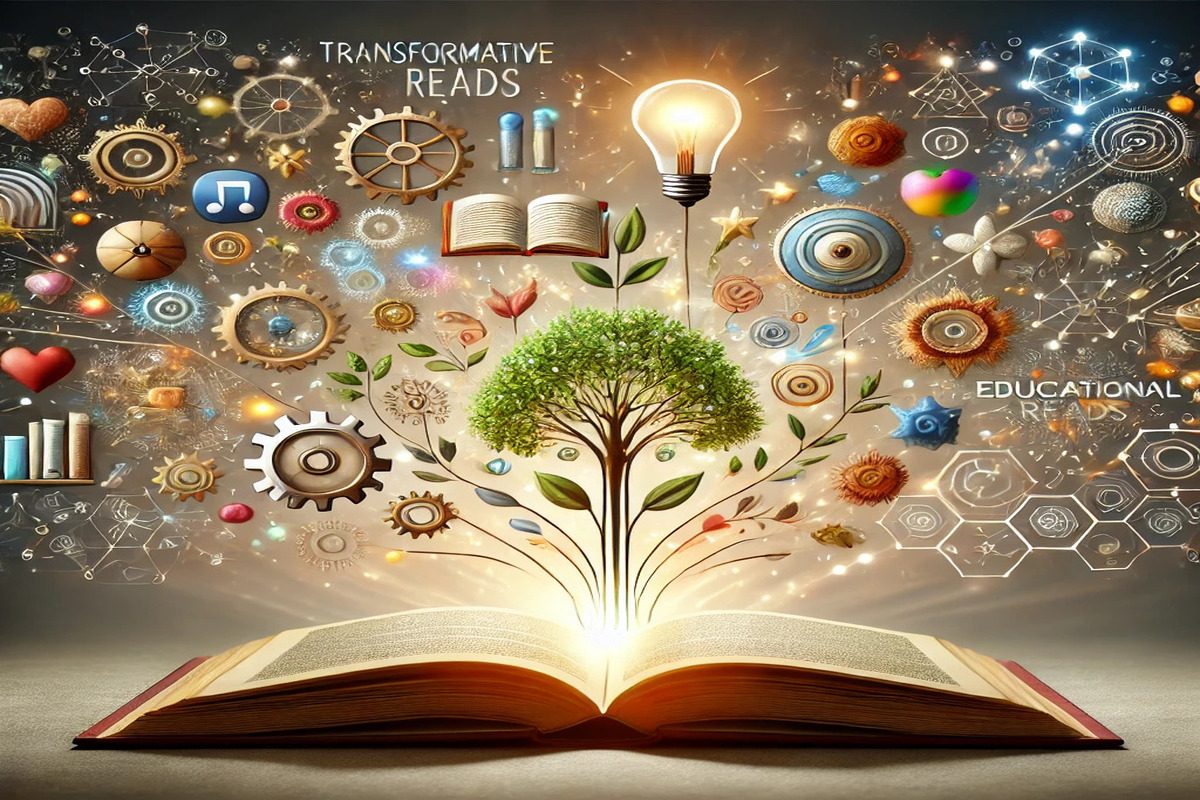Transformative Reads: How Books Can Shape and Inspire Educational Philosophy and Practice
Books have the power to transform not only individuals but entire educational philosophies and practices. Read More
A cornerstone of critical pedagogy, Paulo Freire’s “Pedagogy of the Oppressed” challenges traditional educational models that treat students as passive recipients of knowledge. Freire advocates for an education that empowers students to question, reflect, and actively participate in their own learning. This Brazilian classic emphasizes dialogue and critical thinking, encouraging educators to foster a learning environment that is both liberating and transformative. Jean-Jacques Rousseau’s “Emile, or On Education” is a seminal work in the history of educational philosophy. Written in the 18th century, Rousseau’s treatise outlines his ideas on natural education, where the development of a child’s abilities and character is prioritized over the mere transmission of knowledge. Rousseau’s influence is seen in modern educational practices that emphasize experiential learning and the development of the whole child. Parker J. Palmer’s “The Courage to Teach” delves into the inner landscape of teaching, exploring the emotional and spiritual dimensions of being an educator. Palmer argues that effective teaching stems from the identity and integrity of the teacher, advocating for an authentic and reflective practice. This book is a profound exploration of how educators can bring their true selves into the classroom, inspiring both teachers and students alike. John Holt’s “How Children Learn” is a groundbreaking exploration of the natural ways children engage with the world. Holt challenges the traditional education system by highlighting how children learn best through play, exploration, and curiosity-driven activities. His work has had a lasting impact on child-centered education and has inspired alternative approaches such as homeschooling and unschooling. The Reggio Emilia approach, articulated by Italian educator Loris Malaguzzi, is centered on the belief that children are competent, capable, and full of potential. This philosophy emphasizes the importance of the learning environment, collaboration, and the role of the teacher as a co-learner rather than an authoritative figure. The Reggio Emilia approach has become a model for early childhood education worldwide, particularly in its focus on creativity, inquiry, and the documentation of learning. Though often regarded as a children’s book, Antoine de Saint-Exupéry’s “The Little Prince” offers profound insights into the human experience and the essence of education. Through the eyes of a child, the book explores themes of curiosity, imagination, and the importance of seeing with the heart. This French classic serves as a reminder that education is not just about knowledge but about nurturing wonder, empathy, and understanding. “Totto-chan: The Little Girl at the Window” by Tetsuko Kuroyanagi is a heartwarming account of the author’s experiences at Tomoe Gakuen, an unconventional school in Japan. The book highlights the importance of fostering creativity, individuality, and a love of learning in children. It challenges rigid educational systems and offers an inspiring vision of what education can be when it honors the uniqueness of each child. Erich Fromm’s “The Art of Loving” may not be an educational text in the traditional sense, but its exploration of love as an active, intentional practice has deep implications for education. Fromm’s philosophy encourages educators to approach teaching with love, empathy, and a commitment to the growth of the learner. This German classic provides a powerful lens through which to view the relational aspects of education and the importance of human connection. John Dewey’s “My Pedagogic Creed” is a foundational text in the philosophy of progressive education. Dewey advocates for education as a social process, where learning is rooted in experience and interaction. He emphasizes the importance of democracy in education, where students are active participants in their own learning. Dewey’s ideas continue to influence educational practices that prioritize critical thinking, problem-solving, and collaborative learning. While Leo Tolstoy’s “War and Peace” is primarily known as a literary masterpiece, it also offers profound reflections on history, society, and human nature that are relevant to educational philosophy. Tolstoy’s exploration of the complexity of life, the importance of moral education, and the value of individual agency provides rich material for educators seeking to inspire critical thinking and ethical reasoning in their students. These ten books, drawn from diverse cultures and eras, offer invaluable insights into the nature of education and the role of the educator. Each work challenges us to reconsider traditional approaches and to embrace a more holistic, empathetic, and transformative view of learning. By engaging with these texts, educators and learners alike can find inspiration to shape their educational philosophies and practices in ways that resonate deeply with the human experience. Through these transformative reads, we are reminded that education is not just a process of acquiring knowledge but a lifelong journey of growth, connection, and discovery. 1. “Pedagogy of the Oppressed” by Paulo Freire (Brazil)
2. “Emile, or On Education” by Jean-Jacques Rousseau (France)
3. “The Courage to Teach” by Parker J. Palmer (USA)
4. “How Children Learn” by John Holt (USA)
5. “The Reggio Emilia Approach” by Loris Malaguzzi (Italy)
6. “The Little Prince” by Antoine de Saint-Exupéry (France)
7. “Totto-chan: The Little Girl at the Window” by Tetsuko Kuroyanagi (Japan)
8. “The Art of Loving” by Erich Fromm (Germany)
9. “My Pedagogic Creed” by John Dewey (USA)
10. “War and Peace” by Leo Tolstoy (Russia)
Conclusion

